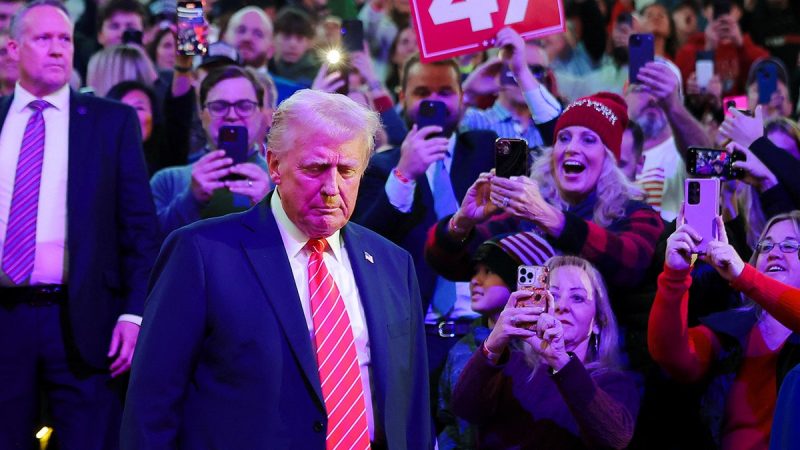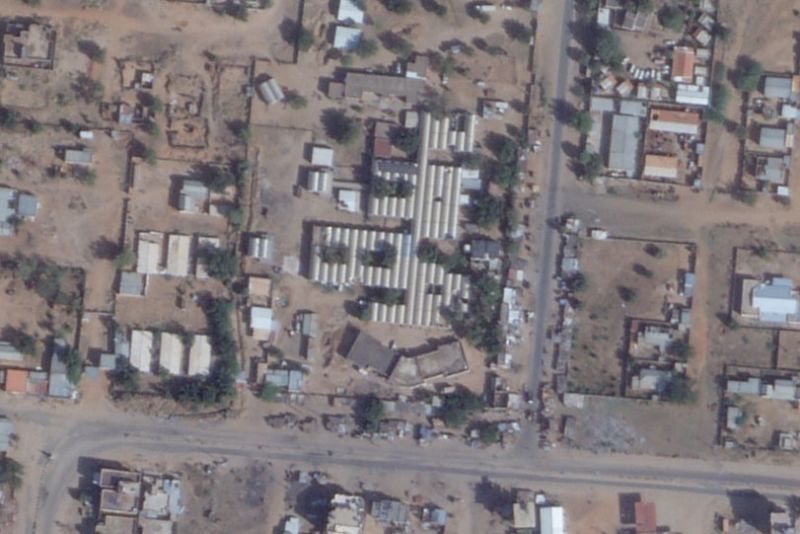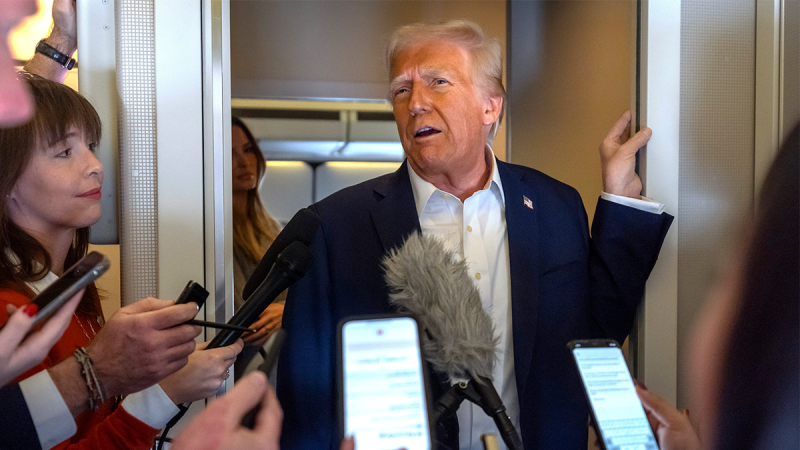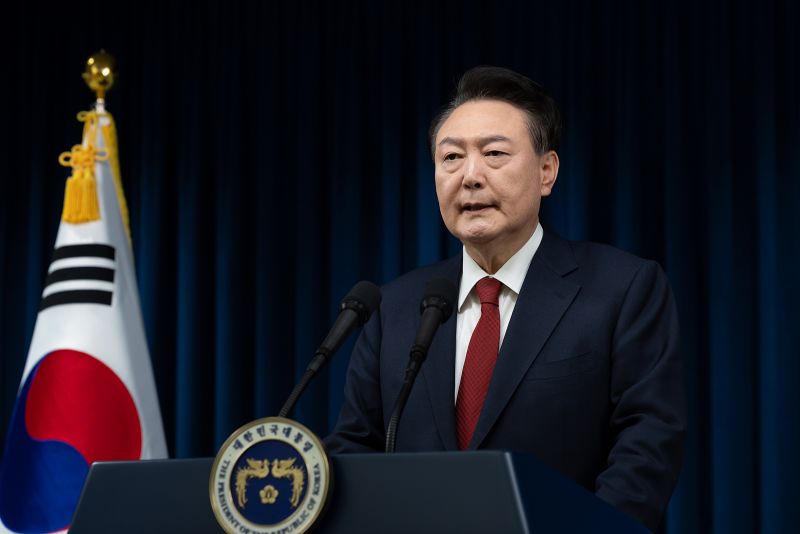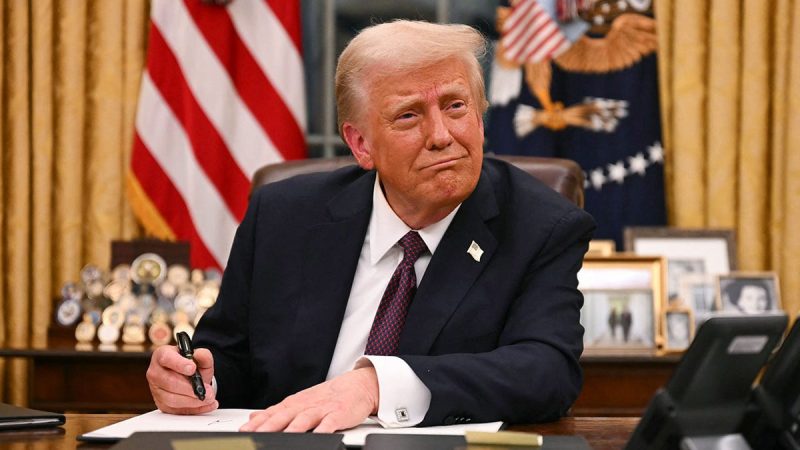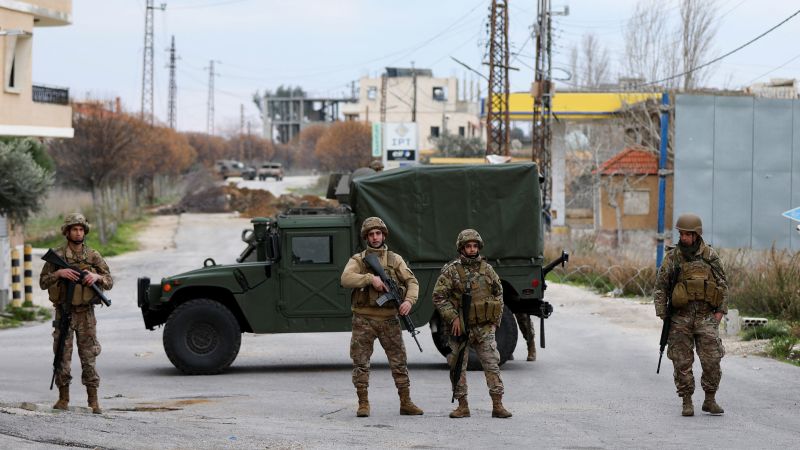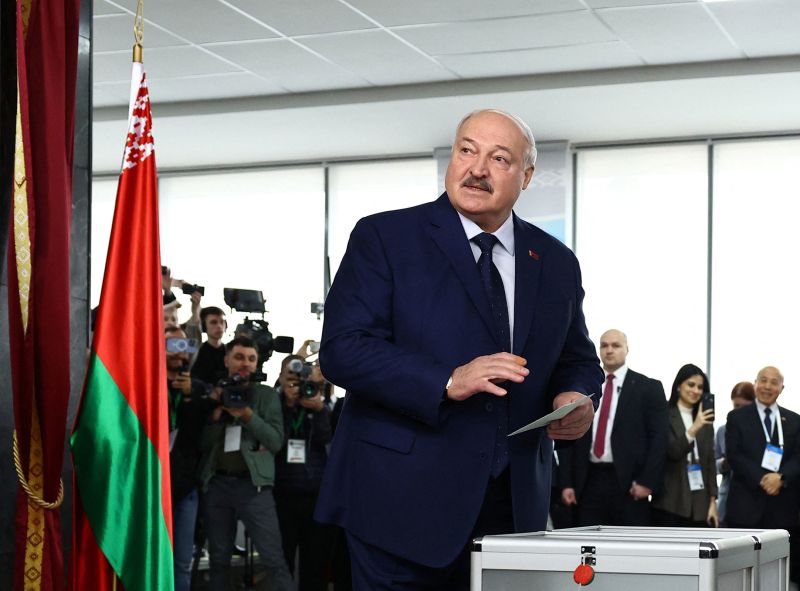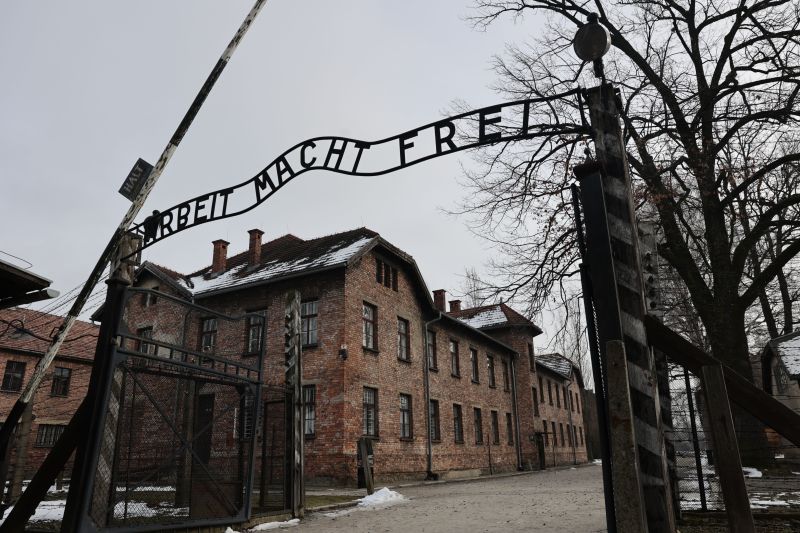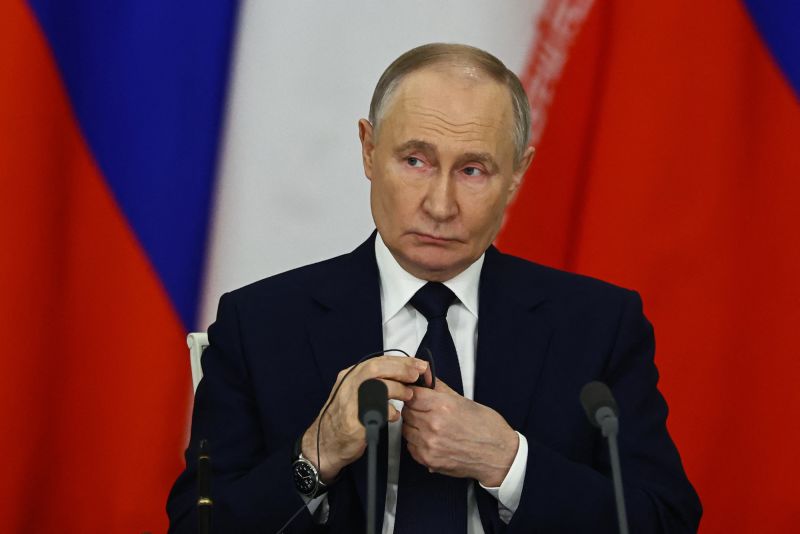
Since Moscow’s full-scale invasion of Ukraine in 2022, Russia’s economy has surpassed expectations. Its figures are, if not rosy, not ruinous either. Last year, the war economy likely grew faster than the United States and all major European economies. Unemployment is at a record low. And if the ballooning defense budget has cramped other spending, that’s only temporary.
These statistics send a message to audiences at home and abroad, said Elina Ribakova, senior fellow at the Peterson Institute for International Economics. To the Russian public: “We’re still standing.” To Ukraine’s allies: “We can outlast you.”
Projecting an image of Russia’s economic strength has real-world consequences. Some in the West have questioned whether the sanctions imposed by Ukraine’s backers – and dismissed by President Vladimir Putin as mere “logistical hurdles” – work at all. If they don’t, why bother?
But other experts say this image of resilience is a mirage – one carefully curated by the Kremlin to make its adversaries think Russia’s economy is in good shape. As the war nears its third anniversary, this mask is starting to slip.
To explain Russia’s apparent economic might, analysts have turned to metaphor. Some have used the phrase “on steroids,” to describe growth that is rapid, but unnatural and unsustainable.
Russia may soon feel the pain after the party. Increasingly disgruntled Russian officials have warned that Russia’s economy is hitting the limits of what it can produce, driving up prices. Inflation accelerated last year despite the central bank hiking interest rates to 21% in October, a two-decade high.
While signing a flurry of executive orders on his first day back in the White House, US President Donald Trump said Russia’s economy was a sign that the country was in “big trouble,” and that Putin was “destroying Russia by not making a deal” on Ukraine.
Evidence of that trouble includes the impact of new sanctions, persistent labor shortages and signs of a credit bubble. Despite recent battlefield gains, analysts say Russia’s worsening economic problems could bring Putin to the negotiating table sooner than expected and may make sanctions relief a more powerful bargaining chip for the West.
Throughout the war, the Kremlin has made extensive use of a strategy known as “reflexive control,” aimed at shaping an adversary’s perceptions in a way that leads the adversary – in this case, Ukraine’s Western backers – to choose actions that benefit Russia.
Weapons are a case in point. Every time the West has considered sending new technology to Ukraine – first, modern tanks, then fighter jets, then long-range weapons – the Kremlin has warned of dire consequences, potentially involving a nuclear strike. This has slowed the supply of weapons to Kyiv, benefiting Moscow.
The economy is no different. The Kremlin wants to convince Ukraine’s allies, particularly the United States, of Russia’s economic strength. If Russia can fund its war for years, the US might support a ceasefire that favors the Kremlin’s goals. Controlling perceptions is paramount, observers say.
And so, it helps to boast of Russia’s economic might. At his marathon annual press conference last month, Putin said Russia’s economy was growing “in spite of everything,” outstripping Europe and the US.
Economic growth and low unemployment have become Putin’s “trump cards,” Alexandra Prokopenko, a fellow at the Carnegie Russia Eurasia Center, wrote recently.
But these headline numbers conceal concerning trends. Russia is hiding the true cost of its war by using a shadow “off-budget financing scheme,” according to a new report by Craig Kennedy, an associate at the Davis Center for Russian and Eurasian Studies at Harvard University.
While Russia’s “highly scrutinized” defense budget remains at sustainable levels, there has been a parallel and “largely overlooked” surge in corporate borrowing. These loans look private but really are disguised state spending, Kennedy wrote.
On February 25, 2022 – day 2 of the full-scale invasion – Russia enacted a law that empowers the state to force banks to lend to businesses providing goods and services for the war on terms set by the state, he noted.
Between the middle of that year and late 2024, Russia saw an “anomalous” 71% surge in private credit, by an amount equal to 19.4% of its gross domestic product, according to Kennedy. He estimates up to 60% of these loans (as much as $249 billion) have been made to war-related firms. “These are loans that the state has compelled banks to extend to largely uncreditworthy, war-related businesses on concessionary terms,” he wrote.
This means Russia is spending almost twice as much on the war as official figures indicate, Kennedy noted.
The funding scheme could lead to a far-reaching credit crisis, he warned, in large part by imposing heavy debt loads on war-related companies that are likely to default over time, which risks overwhelming banks with “a wave of toxic debt.”
Kennedy’s analysis has provoked a range of responses. A Financial Times commentary said it showed Putin was sitting on a “ticking financial time bomb.”
Others are more temperate. Prokopenko and Alexander Kolyandr, a scholar at the Center for European Policy Analysis, have also disputed some of Kennedy’s findings, writing this month that fears of a banking crisis are “overblown.”
Tymofiy Mylovanov, head of the Kyiv School of Economics and Ukraine’s former economy minister, said the findings were concerning, but not necessarily destructive.
One such trigger could be panic among ordinary Russians, who know how it feels to have their savings wiped out. If they believe their deposits are at risk, this could spark bank runs.
Since the fall, rumors have swirled that the central bank could freeze customers’ deposits, which have ballooned as savers have rushed to profit from high interest rates. The Bank of Russia has called the idea “absurd.” But this has done little to reassure Russians, Mylovanov said.
“The fact that they are talking about it is a sign of trouble,” he said. “They cannot not talk about it.”
Meanwhile, the head of Russia’s New People party, Alexei Nechayev, has proposed a new law to prevent the central bank from freezing customers’ deposits without the Duma’s consent.
While the central bank tries to inspire confidence, some are voicing doubts about its governor, Elvira Nabiullina. Although she was credited with saving the economy at the war’s outset, some of Russia’s elite have since turned on her. The head of the state-owned defense conglomerate Rostec said the central bank’s high key interest rate was hampering exports, while the chair of oil giant Gazprom Neft said expensive credit could impact companies providing services to the oil industry, raising “serious concerns.”
Even Putin, a longtime supporter of Nabiullina, made a muted complaint during his year-end press conference, saying the central bank could have used instruments other than interest rate hikes and acted “more efficiently and at an earlier stage.”
Even without a credit crisis, Russia’s economy faces serious headwinds in 2025.
The International Monetary Fund estimates that Russian GDP grew 3.8% in 2024, but forecasts just 1.4% growth this year.
Putin recently conceded that “the amount of products has not grown as much as consumption has” – a classic recipe for price rises. Inflation accelerated to 9.5% last year, from 7.4% in 2023. Some supermarkets locked butter in cabinets to prevent thefts.
Although wages are up, this reflects problems in the labor market. Putin boasts of Russia’s record-low 2.3% unemployment rate, but this sword is double-edged. Low unemployment means higher wages, as Russian companies – short of 1.6 million skilled workers – must pay more to attract labor.
Russia could offset this by encouraging immigration, but Central Asian migrants – long used to plug gaps in the workforce – have faced rising xenophobia after recent terror attacks in Russia stoked ethnic tensions.
Most importantly, Western sanctions are beginning to inflict serious pain. A package announced by the Biden administration in its final days targeted Moscow’s “shadow fleet” – aging oil tankers used to dodge earlier sanctions on Russia’s oil exports. Dozens of these ships have dropped anchor around the world, unable to dock and unload due to the new measures. China and India – whose oil and gas purchases from Russia have helped fund its war – are reportedly looking for other suppliers.
Kyiv’s refusal to renew a gas transit agreement that allowed Russian gas to flow through Ukraine will cost Gazprom up to $5 billion a year in sales, Reuters has reported. The energy giant posted a loss of almost $7 billion in 2023 – its first in nearly 25 years – and is considering axing more than 1,500 jobs. Less money for Gazprom means less for Russia’s war chest.
The growing economic strain is causing Russia’s social contract to creak, said Prokopenko, the Carnegie fellow.
With this support “dwindling” – as war spending eats into budgets for other services – Prokopenko warned there was now “a clear divergence between the expectations of the population and the Kremlin’s capacity to deliver.”
Moscow cannot keep financing the war and the regular economy at the same time as maintaining broader economic stability, she said. Although the Kremlin has so far fudged all three, something may soon have to give.
This post appeared first on cnn.com




